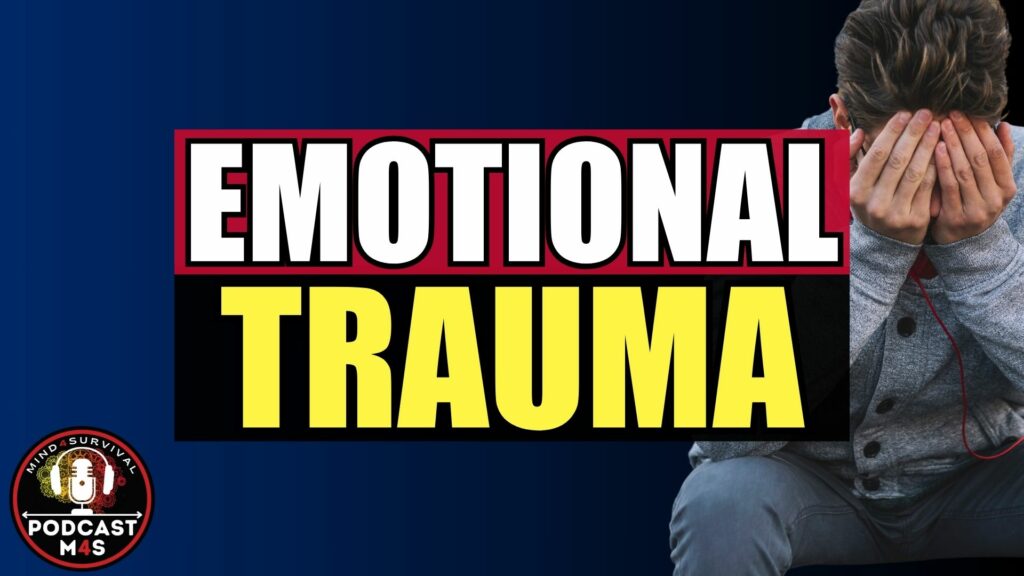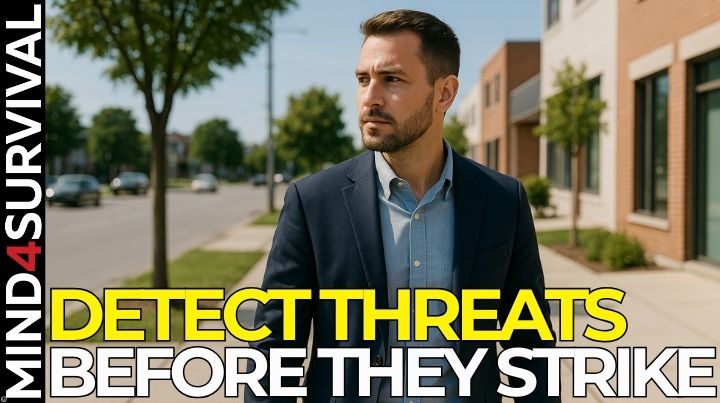The Unseen Enemy: Navigating Emotional Trauma

As preparedness-minded people, we make a concerted effort to prepare for the worst. We stockpile, strategize, and train, readying ourselves for whatever problem may come. But there's one threat that's harder to prepare for because it comes from within—emotional trauma. This invisible and capable enemy can strike at the heart of even the most seasoned prepper, undermining our preparedness efforts and lives overall.
Understanding Emotional Trauma
The Brain's Tangled Web
Emotional trauma is a beast of a different nature. It's not just psychological; it manifests physically within our brains. Traumatic memories aren't stored like regular ones. They're fragmented and scattered across our consciousness, making them unpredictable and overwhelming. These memories are stored in the amygdala, devoid of context, connecting us to the trauma of the past and sometimes resulting in flashbacks that feel immediate and terrifying.
The Echoes of the Past
Trauma can make us relive our worst moments without warning. A sound or a smell can transport us back to the battlefield, a disaster zone, of the scene of a horrific assault, making it feel as if we're experiencing it all over again. This isn't just distressing; it's disorienting, tearing at the fabric of our present reality.
The Physical Manifestations of Trauma
Beyond the Mind
The impact of trauma extends beyond mental flashbacks. It can cause physical symptoms like panic attacks and severe anxiety and even lead to dissociative disorders. It also leads to depression and extreme frustration for the person affected. In extreme cases, people may develop alternate personalities as a way to categorize their traumatic experiences.
The Path to Healing
Rebuilding the Narrative
Healing from trauma is like piecing together a shattered vase. It requires us to confront each fragment, no matter how painful, and fit them back into our life's narrative. This process isn't just about memory; it's about reassociating those memories from the emotions that were too overwhelming to process at the moment of trauma.
Healing past trauma is not easy, but it is necessary to live a good life. To quote the ancient scholar Rumi, “The cure for pain is in the pain.” In other words, the way to heal from emotional trauma is to face it head-on rather than trying to avoid or numb it.
The Power of Empathy
By navigating through our trauma, we can develop a profound sense of empathy and connection with others. Recognizing our vulnerabilities allows us to connect on a deeper level, seeing our own struggles and the shared human experience of pain and resilience.
The Prepper's Dilemma
The Drive to Protect
Many of us in the prepping community are driven by a deep need to protect and prepare for ourselves and others. This drive often stems from our own experiences of trauma, where achievement and readiness were ways to earn recognition and safety.
In my case, my early experiences of earthquakes, illness, and other events set me on the quest to maintain safety. It led me to become a scout, lifeguard, firefighter-paramedic, army ranger, and diplomatic protection specialist. After all, while I focused on protecting others, I was, by default, protecting myself.
The Irony of Preparedness
It's a fact that our prepping can sometimes be a response to unaddressed trauma. Oddly enough, while we prepare for external threats, the greatest danger might be the unresolved trauma within us. That was my case when it came to my Post Traumatic Stress (PTS). Recognizing this can be both unsettling and enlightening, offering a new perspective on what it means to be truly prepared—both mentally and physically.
Embracing the Journey
Finding Balance
Navigating emotional trauma requires us to find a balance between preparing for external threats and facing our internal storms. This journey is not just about survival—it's about building resilience, understanding, and empathy. It's about preparing not just for the disasters we can see but for the ones we feel inside.
The Unseen Path
For us preppers, the path forward involves not just stockpiling supplies but also building our emotional resilience. It's about recognizing that the most significant battles might not come from the outside world but from the memories and emotions within us. By facing our traumas, we become not only better prepared for the world's uncertainties but also for the complexities of our own hearts and minds.
Resilience in the Face of Adversity
In the prepping community, we often talk about physical resilience: the ability to endure challenging conditions and to survive when the odds are stacked against us. However, there's another kind of resilience that's equally important but less discussed: emotional resilience. This is the strength that allows us to face our inner demons, the traumas that haunt us, and come out stronger on the other side.
From Trauma to Transformation
Trauma can be a transformative force. While it's undeniably painful and can leave deep scars, the process of confronting and working through trauma can lead to profound personal growth. Many of us in the survival community have faced our own traumas, whether on the battlefield, in the wilderness, or within our own homes. These experiences, while harrowing, can also be the catalyst for a deeper understanding of ourselves and the world around us.
The Role of Community
One of the most powerful tools we have in facing trauma is community support. In the preparedness world, we understand the importance of banding together and relying on each other's strengths to overcome challenges. This principle applies just as strongly to emotional trauma. By sharing our stories, fears, and triumphs, we create a space where the processing of memories and healing can occur. It's not just about surviving; it's about thriving and building a safe but meaningful and fulfilling life.
The Bottom Line on Navigating Emotional Trauma
In confronting the unseen enemy of emotional trauma, we place ourselves on a journey that redefines what it means to be prepared. It's a path that challenges us to look inward, to confront the shadows within us with the same courage we face external threats. Let this be a challenge to my fellow preppers: our greatest strength lies not just in our supplies and skills but in our mindset's ability to navigate the depths of our own experiences, to heal, and to emerge more resilient than before. In this, we find the true essence of preparedness, which equips us for the physical and emotional challenges ahead.
What are your thoughts on this article? Please share them in the comments below.
Additional Resources
- Grief as a Force Multiplier
- Preparedness (The True Meaning of Preparedness)
- Help Guide: Emotional and Psychological Trauma
Stay safe,

Related Articles
FREE Guide
Read the Best Seller
Join Mind4Survival
Stay informed by joining the Mind4Survival! 100% Secure! 0% Spam!
Affiliate Disclosure...
Mind4Survival is a free, reader-supported information resource. If you make a purchase through our link, we may, at no cost to you, receive an affiliate commission.
Do You Want To Be Ready No Matter What?

Download our free 39-page guide with interactive, 7-Day Emergency Kit Checklist and take the first step toward real preparedness.
- Know exactly where to start.
- Save time and money.
- How-to build a complete Basic Emergency Kit.
- Level up your safety and security.
Join Mind4Survival
Stay informed by joining the Mind4Survival! 100% Secure! 0% Spam!






Great article. Informative and thoughtful.
Is it possible, and likely you may offer a pdf for this article and the other emotional wellness articles listed.
I would truly appreciate being able to refer to the good advice and support offered here.
Thank you.
I will definitely put it on the list of things to look at. Thanks for your amazing feedback! ~B
A-f’n men!
I like the way you always hit the psychological, mental aspect of preparedness. Preparedness is both physical and mental. A lot of people are fooling themselves relying on purchasing food and weapons! There will always be an afterthought and a price for the victor!
Thanks! I appreciate you taking the time to leave your fantastic comment!